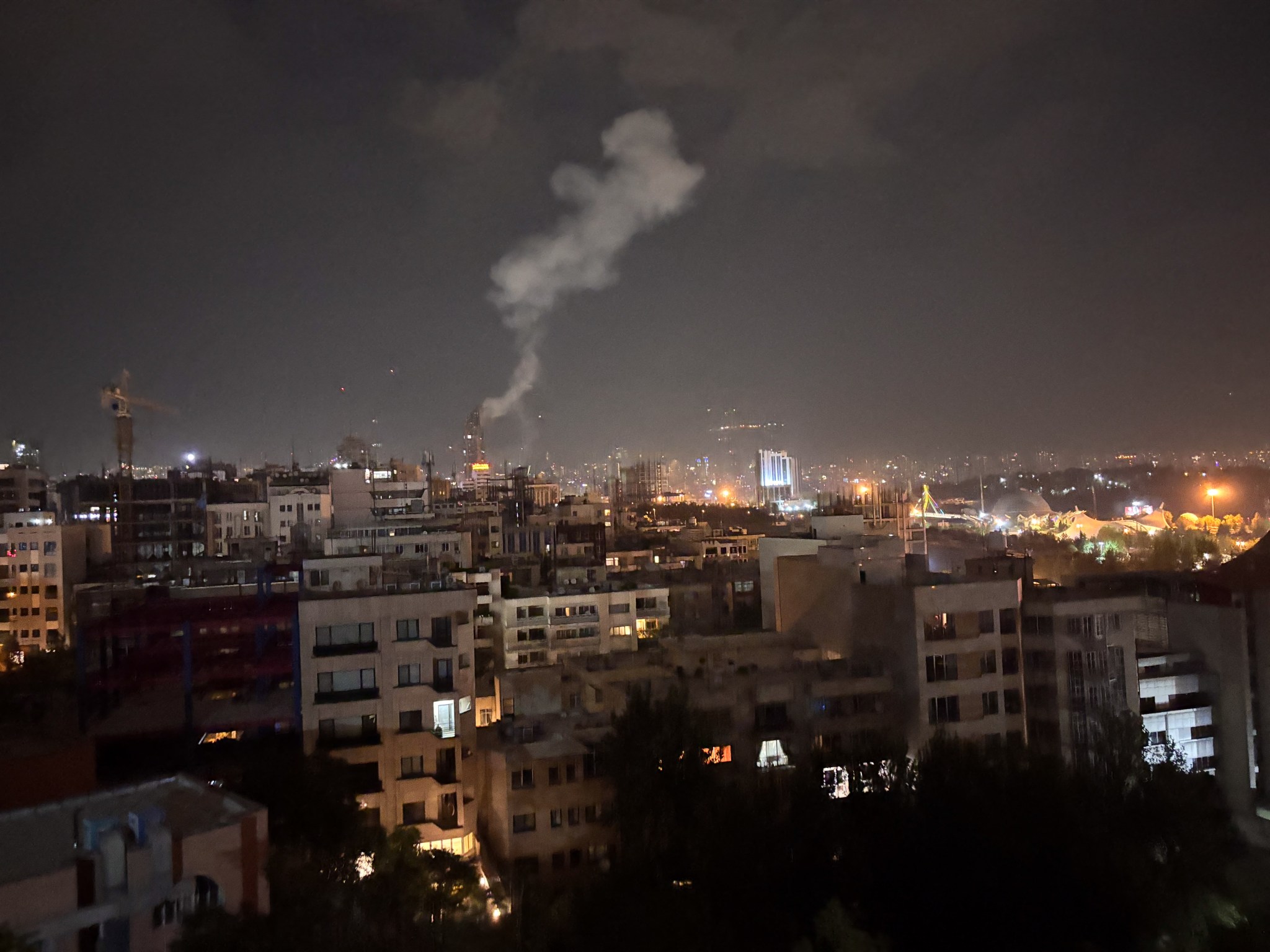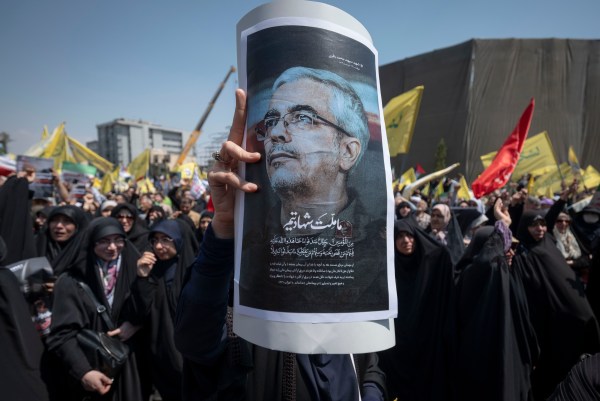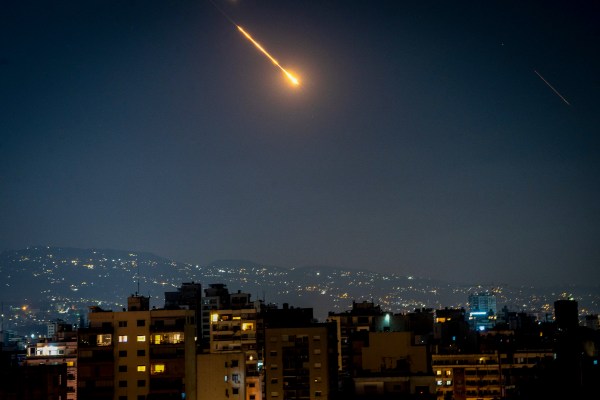Happy Friday! Do you enjoy reading TMD? What about writing it? As we continue to grow, we’re looking to bring on another editor to work on this newsletter. If you’re interested—or know someone who might be—check out our careers page, where you’ll also find a listing for our VP of Multimedia role.
Quick Hits: Today’s Top Stories
- Israel launched multiple waves of airstrikes against Iran early Friday morning local time, attacking nuclear facilities—including Natanz, Iran’s main enrichment site—and eliminating key military leaders. Iranian state media confirmed that Israel killed Gen. Hossein Salami, the commander of the Islamic Revolutionary Guard Corps; Maj. Gen. Mohammad Bagheri, chief of staff of Iran’s military; Ali Shamkhani, a national security official and advisor to Ayatollah Khamenei; Gen. Gholamali Rashid, a senior military leader; and several senior nuclear scientists, among others. Israeli Prime Minister Benjamin Netanyahu delivered a speech shortly after Operation Rising Lion began, stating that strikes targeting Iran’s nuclear program would “continue for as many days as it takes to remove this threat.” According to Netanyahu, Iran could have created a nuclear bomb as early as “within a few months.” The United States distanced itself from the attack, with Secretary of State Marco Rubio saying in a statement that the strikes were “unilateral” and that the U.S. was “not involved.” The statement also warned Iran against attacking any U.S. “interests or personnel,” adding that the administration’s top priority is “protecting American forces in the region.” President Donald Trump spoke to Fox News hours later, reiterating that, although he knew about Israel’s attack beforehand, the United States was not involved. “Iran cannot have a nuclear bomb and we are hoping to get back to the negotiating table,” he said. “We will see.” Iran threatened retaliation against Israel, while saying that it was also holding the U.S. responsible. Israeli Defense Minister Israel Katz declared a special state of emergency within Israel, saying that a “missile and drone attack” is expected against the civilian population in the “immediate future.”
- Hours before Israel’s attack on Thursday, Iran had announced plans to open a “third secure site” for uranium enrichment. The site is “already built, prepared, and located in a secure and invulnerable place,” Iranian officials claimed. The announcement came in response to a decision by the International Atomic Energy Agency (IAEA), the United Nations’ nuclear watchdog, to censure Iran for failing to comply with its nuclear nonproliferation obligations. The IAEA’s resolution—its first against Iran in 20 years—followed the agency’s recent report concluding that Iran had amassed more than 900 pounds of 60 percent enriched uranium, enough fissile material for 10 nuclear weapons if enriched further.
- An Air India passenger plane crashed in the western Indian city of Ahmedabad on Thursday, killing more than 290 people—including dozens on the ground—and leaving only one survivor among the aircraft’s 242 passengers and crew. The 12-year-old Boeing 787-8 Dreamliner had just departed for London at the time of the crash, the cause of which is still unclear. Indian officials have opened an investigation into the incident, which was the first to involve Boeing’s 787.
- The 9th Circuit Court of Appeals granted an administrative stay of District Judge Charles Breyer’s ruling late Thursday night that blocked President Trump from deploying the National Guard in Los Angeles, temporarily restoring Trump’s ability to deploy troops in the city. The three-judge panel scheduled a hearing for Tuesday, with the pause on Breyer’s order continuing at least until then. Breyer’s initial ruling ordered Trump to return control of the National Guard to Gov. Gavin Newsom, holding that the president’s federalization of the California National Guard exceeded the scope of his authority and violated the 10th Amendment.
- The House of Representatives voted 214-212 on Thursday to advance President Trump’s rescission bill, which would codify some Department of Government Efficiency-championed cuts and cancel $9.4 billion in previously approved spending. More than $8 billion of the funds were directed to foreign aid, while the remainder was for the Corporation for Public Broadcasting, which helps fund NPR and PBS. Some GOP lawmakers had previously voiced concerns about cuts to the President’s Emergency Plan for AIDS Relief, local broadcasting stations, and emergency alerts, but the package passed narrowly after House Speaker Mike Johnson convinced two Republican holdouts to change their votes. The package now faces a vote in the Senate, where Majority Leader John Thune left open the possibility of Senate changes to the proposed cuts.
- Texas Gov. Greg Abbott said Thursday that he had officially ordered the deployment of 5,000 National Guard troops and 2,000 state police to manage protests against the Trump administration’s immigration policy. According to a press release from Abbott’s office, the deployment is to “support local law enforcement” in bolstering public safety and protecting public property. Thousands of protests across all 50 states are scheduled to take place ahead of Saturday’s military parade in Washington, D.C., marking the Army’s 250th anniversary.
- Federal agents removed Democratic Sen. Alex Padilla from a press conference in Los Angeles held by Homeland Security Secretary Kristi Noem on Thursday, forcing the California senator to the ground and handcuffing him. In videos of the incident, Padilla identified himself after agents began pushing him out of the room and said he had “questions for the secretary.” Officers with FBI vests then handcuffed the senator in the hallway outside the room. In a statement on X, the Department of Homeland Security said that Padilla had interrupted the press conference, ignored officers’ commands, and lunged towards Secretary Noem. Padilla’s office says he is not currently detained, and Noem told Fox News that she had a “cordial and beneficial” 10-15 minute meeting with Padilla after the incident.
Operation Rising Lion Commences

Just after 3 a.m. local time, families across Israel awoke to the familiar trill of air raid sirens. But rather than signaling an incoming attack, the alarms alerted civilians that sweeping strikes on Iran by their own country had begun.
Beginning overnight and stretching well into the afternoon, Israel carried out multiple waves of attacks on the Islamic Republic, hitting nuclear sites and scientists, top Iranian officials, missile sites, and other targets across the country. The long-anticipated military confrontation comes as the Islamic Republic had inched perilously close to a nuclear weapon. Iran’s Supreme Leader Ayatollah Ali Khamenei, whom Iranian officials confirmed was not killed in the attacks, vowed there would be a “harsh response” to the airstrikes.
Israeli Prime Minister Benjamin Netanyahu delivered a video address shortly after the attacks were underway. “Israel will never allow those who call for our annihilation to develop the means to achieve that goal. Tonight, Israel backs those words with action,” he said Friday morning, dubbing the attacks Operation Rising Lion. “When enemies vow to destroy you, believe them. When enemies build weapons of mass death, stop them. As the Bible teaches us, when someone comes to kill you, rise and act first.”
Today’s Must-Read

The New Women’s Issue: Men
Toeing the Company Line



Bordering on Overkill

Two Truths About Abortion Laws and Life-Threatening Pregnancies

The Hidden Injuries of Poor Customer Service

Fear and Looting in Los Angeles

Right To Sue the Feds
Update, June 13, 2025: This newsletter has been updated to include additional comments from President Trump.










Please note that we at The Dispatch hold ourselves, our work, and our commenters to a higher standard than other places on the internet. We welcome comments that foster genuine debate or discussion—including comments critical of us or our work—but responses that include ad hominem attacks on fellow Dispatch members or are intended to stoke fear and anger may be moderated.
With your membership, you only have the ability to comment on The Morning Dispatch articles. Consider upgrading to join the conversation everywhere.